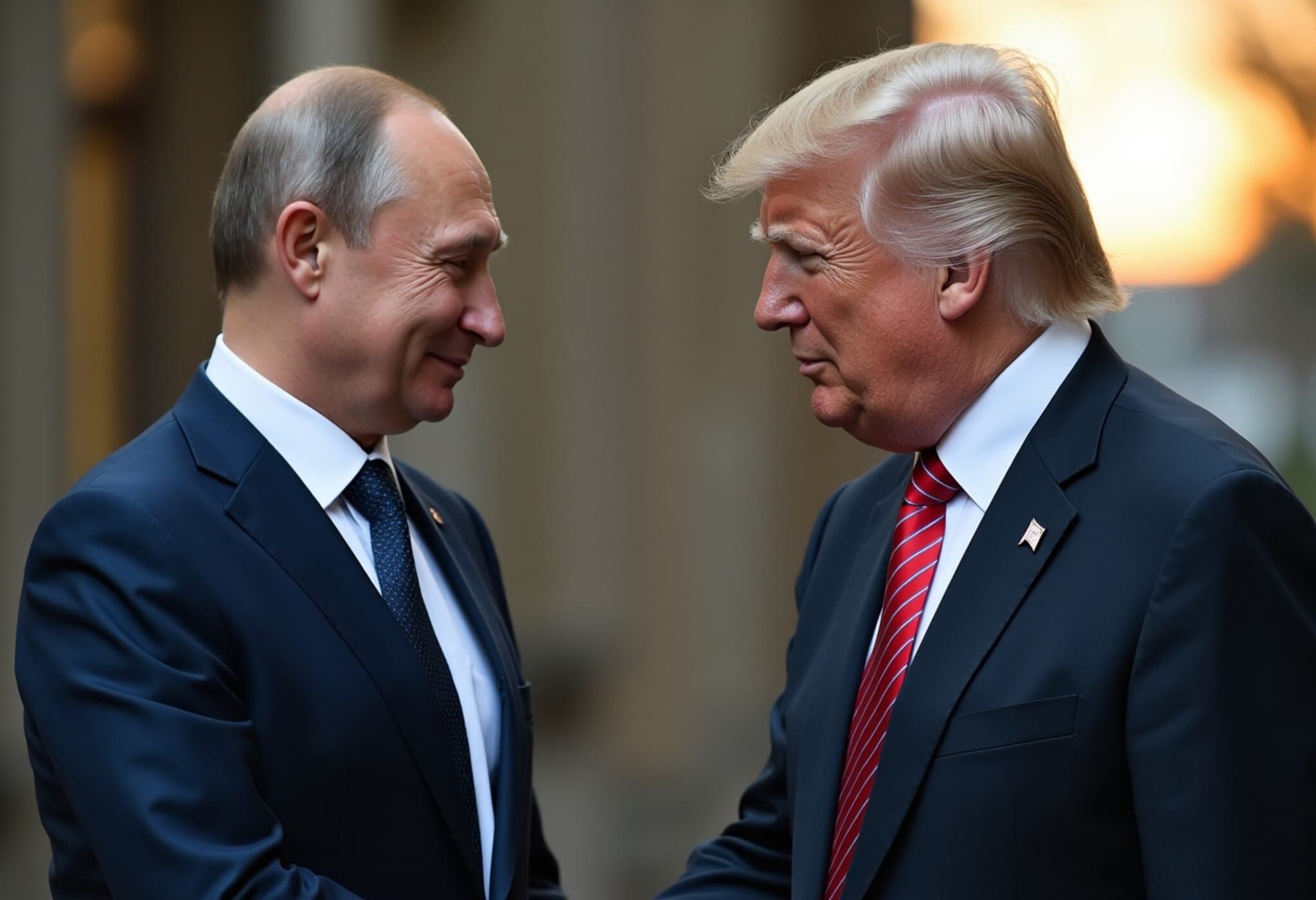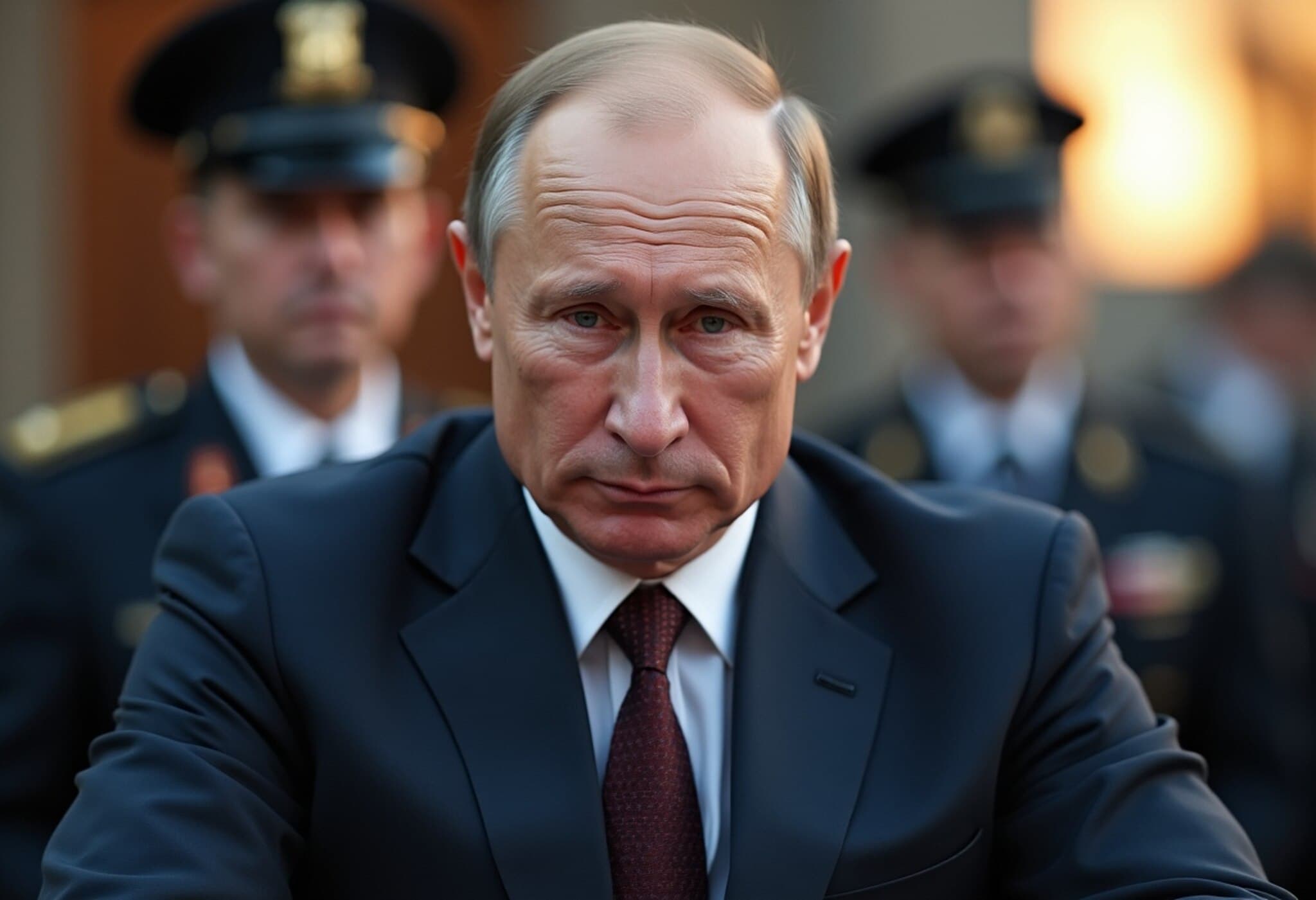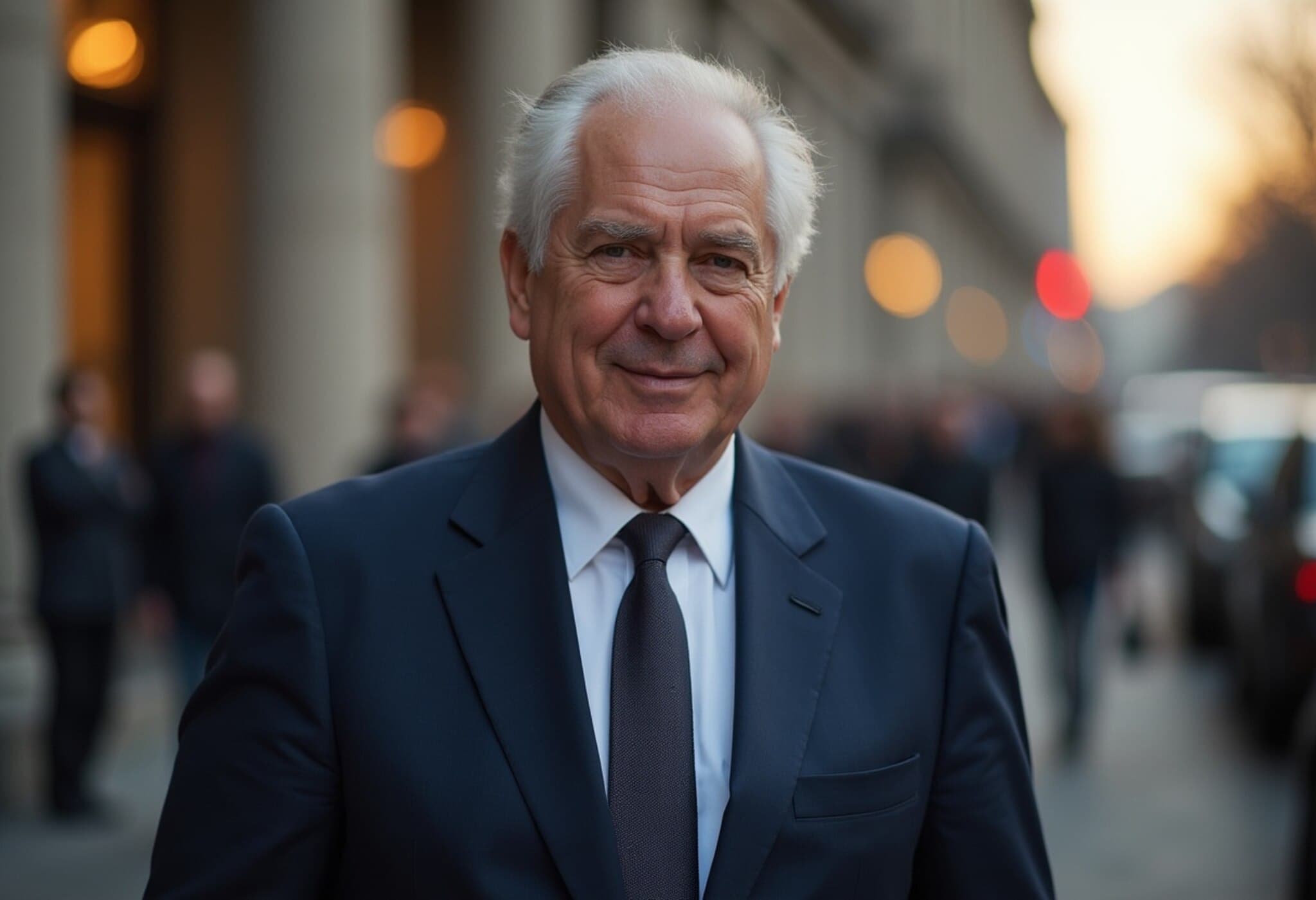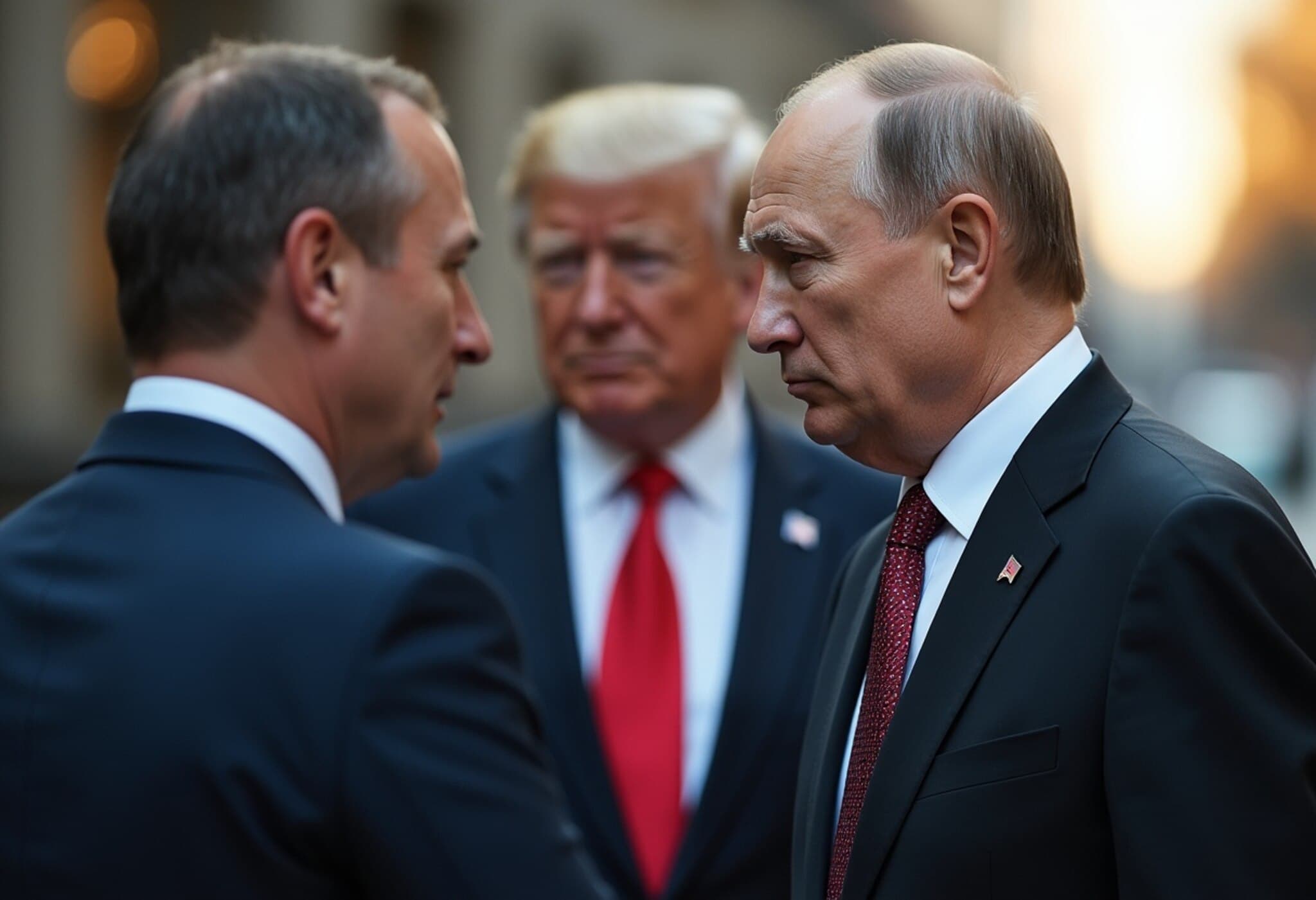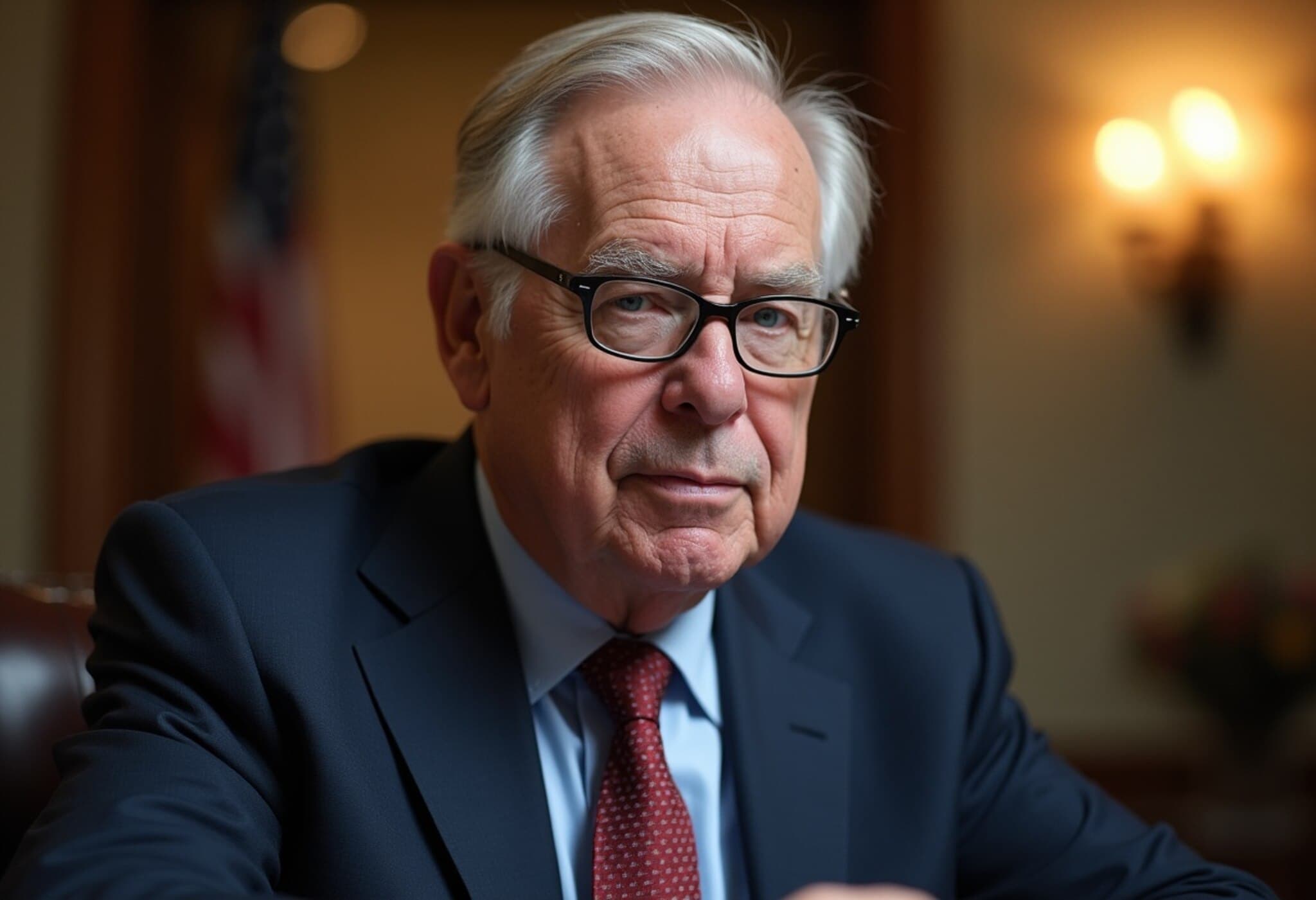Putin's Peace Proposal: Eastern Ukraine as Bargaining Chip
In a development that could reshape the trajectory of the Russia-Ukraine conflict, Russian President Vladimir Putin has reportedly made a bold demand on the verge of his upcoming meeting with former U.S. President Donald Trump. The summit, scheduled for August 15, 2025, in Alaska, is set to focus on negotiating a potential end to the brutal war that has ravaged Ukraine since 2022.
According to credible sources including a detailed report by The Wall Street Journal citing European and Ukrainian officials, Moscow's terms for a ceasefire hinge on securing control over four critical provinces: Luhansk, Donetsk, Zaporizhzhia, and Kherson. Beyond territorial demands, Putin is pushing for global diplomatic recognition of Russia’s claims over these regions — a significant geopolitical ask that challenges international law and existing agreements.
Trump's Role: Negotiator with a Focus on Territory Swaps
Donald Trump, who is stepping into the diplomatic spotlight once again, has expressed cautious optimism about the prospects for peace. Speaking at a recent briefing, Trump highlighted the likelihood of territory swaps as part of any agreement, emphasizing these exchanges would be beneficial for both sides but stopped short of offering specifics.
"We’re gonna get some [territory] back. There’ll be some swapping of territories, to the betterment of both," Trump stated, further adding, "President Putin I believe wants to see peace."
Through his social media channel, Truth Social, Trump formally announced the Alaska summit, marking the first official U.S.-Russia summit since President Joe Biden's 2021 meeting with Putin in Geneva.
The Stakes and Context of the Alaska Summit
This meeting arrives at a time when the world watches closely for signs of de-escalation in Europe’s deadliest conflict since World War II. For Putin, the offer seems to be a calculated attempt to solidify territorial gains gained since 2014 and especially after the 2022 full-scale invasion. For Ukraine and its Western allies, ceding eastern territories threatens sovereignty and may set a dangerous precedent in international diplomacy.
An expert on Eastern European geopolitics notes, "Recognizing annexation in exchange for peace might bring short-term ceasefire but could institutionalize territorial conquest, undermining international norms that have prevented regional conflicts worldwide.""
Unanswered Questions and Broader Implications
- Will Ukraine consent to territory swaps? Kyiv has consistently rejected Russia's claims; any agreement would require overcoming significant political and public resistance.
- What role will NATO and other Western powers play? Since alliances support Ukraine's defense, their stance on Putin's demands is pivotal.
- Could this deal redefine the post-Cold War security landscape? Affirming Russia’s territorial claims might shift power balances and encourage similar moves globally.
Given these complexities, the summit’s outcome could either pave the way for a fragile peace or deepen geopolitical divisions.
Looking Ahead: The Human Cost and Diplomatic Challenges
The human toll in eastern Ukraine remains severe, with civilians bearing the brunt of ongoing hostilities. A ceasefire anchored in territorial concessions may halt violence but risks leaving lasting grievances and displaced populations in its wake.
As the world awaits the outcome of the Alaska summit, policymakers and analysts urge a nuanced approach that balances immediate peace prospects with long-term regional stability and respect for sovereignty.
Editor’s Note
This upcoming meeting between Donald Trump and Vladimir Putin represents more than a high-profile diplomatic encounter: it exemplifies the fragile interweaving of peace aspirations, territorial integrity, and international law. While peace is universally desired, the concessions on the table underscore the thorny dilemmas policymakers face. Will the promise of ending the conflict justify territorial compromises, or will such deals sow the seeds for future instability? The global community must watch closely, not only for what is agreed upon but also for what is left unresolved.

